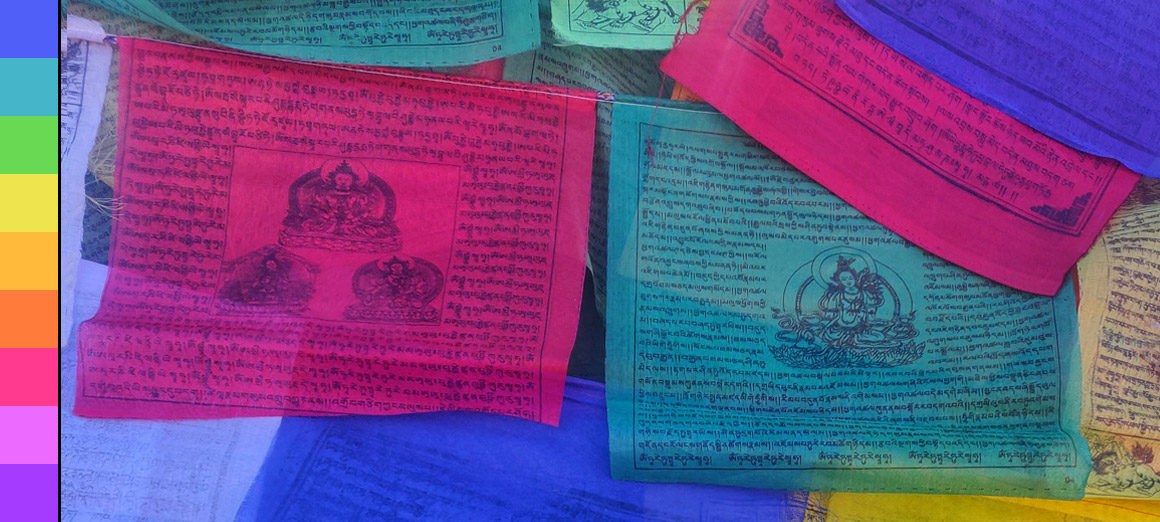by Nina Herzog

As a Buddhist, technically, I’m not supposed to be angry. So how exactly does that go? Anger eats us up inside, it’s a poison. As The Most Awesome Ruth King once told me on retreat, “Anger is not the deepest truth that wants to be told.” That pretty much stopped me in my angry tracks. It also forced me to go deeper. What’s this deeper truth?
As an ode to Pride month, I’d like to offer this reflection: While I identify as gay-as-a-technicolor-synchronized-swimming-competition, over the years I’ve come to understand that the queerest thing about my body is its size, not its gender or sexual expressions. These last few years, I’ve finally gotten in touch with how unjust the world is for fat people. This has taken me a long time. It’s permeated every part of my life, every phase of my development, every year of my 55-year old existence, shaped the way I see everyone I meet, every environment I enter, every community I consider joining. It’s certainly the first thing people see about me. Because I’m NYC-based, my “standard” queerness isn’t as central anymore. As an immigrant, coming out to my parents at 27, in 1993, just six months before my mother died, it was a bit of a horror, but that horror ended, for the most part. The horror that is being fat in this world continues.
Ruth King also told me to seek refuge in community, that we were just at the beginning of this fat body revolution, stressing to me that it was in fact a revolution, that fatphobia was “ignorance, big time.” My dharma mentor Sebene Selassie — who I happened to meet during my CPP (Contemplative Psychotherapy Program) course and was the first person I had ever heard mention fat oppression in a Buddhist space — introduced me to East Bay dharma folx and fat activists Max Airborne and their partner Dawn Haney. Together the three of us fat queer Buddhists made our own virtual fat-queer dharma space — Fatties for Freedom. So while on another retreat on Shantideva’s Guide to the Bodhisattva’s Way of Life, when one of the teachers went off on an extended tear about the West’s “epidemic of obesity,” this time I had a good friend to reach out to when those old feelings of not belonging here resurfaced. My buddy Max wrote me: “You were born in the perfect body to benefit the awakening of all beings.”
I can’t tell you the number of times I’ve tried to remind myself of that.
Last month Max and I — as well as Carly Goldberg, a fellow practitioner at the online Tuesday lunchtime meditation I host for Nalanda Institute — attended a virtual weekend retreat held by Barre Center for Buddhist Studies called, “Marginalized Bodies and Liberatory Inclusion: How to be a Dharma Freak,” led by Bee Scherer. The room was filled with what I’m now thinking of as queer bodies — all different sizes, abilities, genders, neurodiversities. I had never been in such a space. This queerness was bigger and more inclusive than any I’d known. I’m liking this notion, this spirit, of liberatory inclusion. Yes, that’s what I’d like to practice; that’s where I’d like my very queer body to live.
Back to my interview with Ruth King, and the refuge of teachers and their wisdom. Both she and Sebene directed me to the refuge of sangha and community. Both of these human wisdom-dispensers also reminded me that freedom is available at any moment. As Ruth King said, “Your freedom doesn’t depend on whether they get it or not.” At the same all-star retreat, Sebene said, “Oppression is like a bumpy road. Our job is to understand what’s the road and what’s our wheel.”
Thank you, Ruth; Thank you, Seb; Thank you, Bee; Thank you, Max. Thank you, Dawn; Thank you, Carly. Thank you, Nalanda Institute, and all who read this. Thank you all for trying so hard to help all of us — we freaks of the dharma in all our manifestations and queered bodies — together, and for the sake of all beings, to be free.
Editor’s Note: A graduate of the Nalanda Institute’s Contemplative Psychotherapy Program and the Gestalt Center for Psychotherapy and Training, Nina Herzog (she/her) is a writer and psychotherapist. Her writing has appeared in Tin House, Los Angeles Review of Books, Words without Borders and Tricycle, among other publications. She will be opening up a private psychotherapy practice in early 2022. A member of the Nalanda Institute meditation teaching faculty, Nina teaches meditation virtually every Tuesday at 1pm as a part of Nalanda Institute’s Lunchtime Meditation series.
